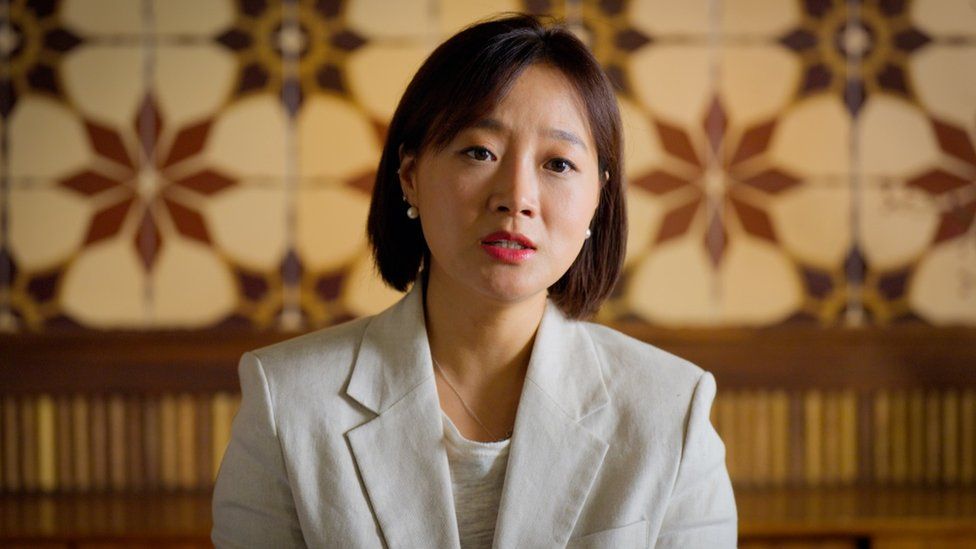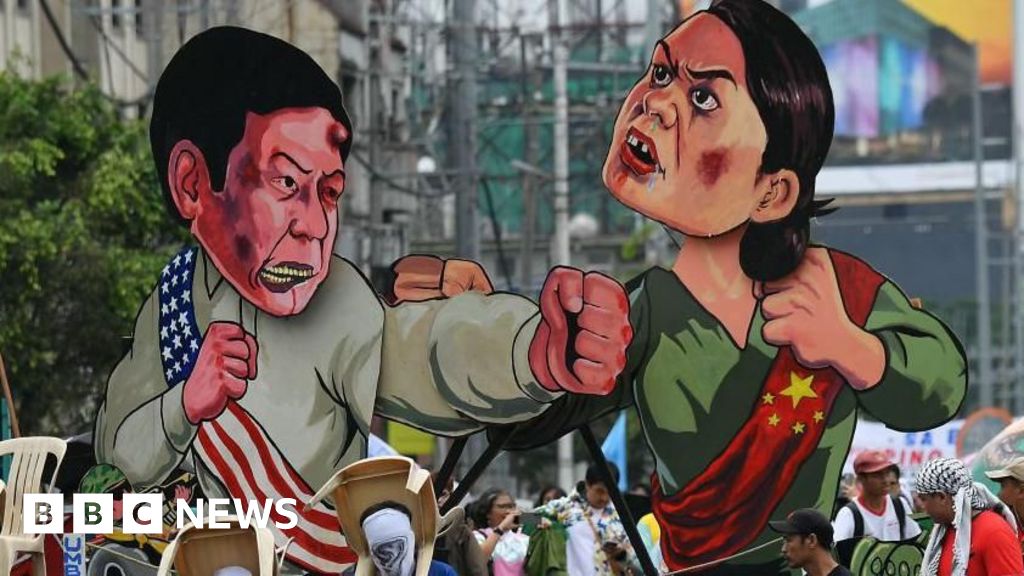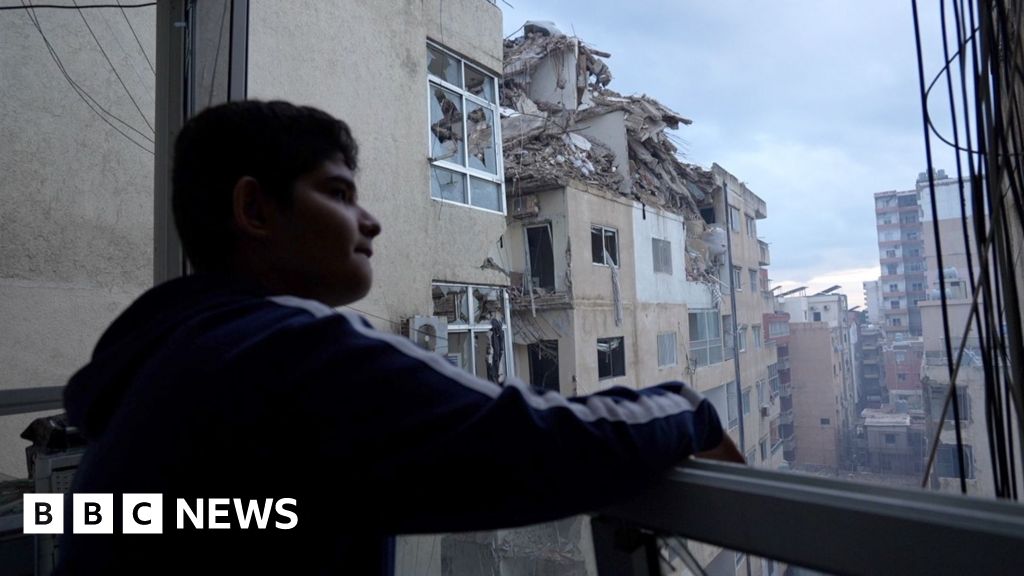ARTICLE AD BOX

Journalist Kang Kyung-yoon
By Luis Barrucho & Kai Lawrence
BBC World Service
The lives of Park Hyo-sil and Kang Kyung-yoon, two female journalists based in South Korea, took a shocking turn when they helped bring to light a sex scandal involving famous K-pop stars. Little did they know, their pursuit of truth would come with immense personal sacrifices.
It was September 2016 and Park, a Seoul-based newspaper reporter, had logged off for the weekend. She was about to meet a friend when she received a phone call from her editor with a tip-off from a trusted police source.
"He told me there was a big case being investigated which involved secretly recorded sex footage and a big-name celebrity: Jung Joon-young."
Jung was a huge singer-songwriter in the band, Drug Restaurant, and a TV star loved by millions. But the source said Jung's girlfriend had accused him of secretly filming her during sex, a crime known as "molka" in South Korea.
Park cancelled her dinner plans and headed straight back to the office to meet her editor.
"We just didn't want to miss the scoop," Park recalls. "I published the story on Friday evening at 22:50.
"I had no idea how massive it was going to be."
Within minutes, the story made headlines across South Korea. "Media outlets went into a frenzy," she says.
Image source, AFP
Image caption,Jung Joon-young was one of K-pop's biggest stars when the scandal was exposed
Jung's management team sprang into action and released a statement which called the police investigation an "unimportant incident inflated by the press".
Jung's fans quickly accused his girlfriend of lying about the star. Then they turned on Park.
"The media was the villain," she says. "I bore the brunt of it."
The journalist was bombarded with abusive comments online and malicious emails. People posted images of her face and body on the web and insulted it. "What a face. Makes me want to stamp on it," one message read.
She says people phoned her newspaper editor and threatened him: "If you don't sack her, we're going to set fire to your building."
Park says: "They were sending me death threats. My husband was incredibly worried and told me not to go into the office, not to leave the house because it seemed so dangerous."
Six months later, the abuse escalated.
Park Hyo-sil was trolled as soon as her exclusive was published
"I started receiving phone calls in the early hours... and they would continue for about three to four hours. When I didn't answer the phone, they started sending obscene images."
Park was inundated with thousands of messages every day.
"I was pregnant and I was in such shock. I was so mentally shattered that even going out of the house was difficult," she says. "After that, I had two miscarriages and now I am childless."
While it may not have been the sole reason, Park believes stress may have played a part in her miscarriages. "I'm sure it did influence it," she confides.
While Park grappled with the fallout, Kang Kyung-yoon, an entertainment reporter with SBS, one of South Korea's biggest broadcasters, had been investigating several K-pop stars herself.
She was about to finish what Park had started.
When Jung was first interviewed by police in 2016 about molka, he was asked to hand in his mobile phone for analysis. He chose not to and instead gave it to a private forensics company - a decision he has never explained.
Jung did not know it, but at the time a copy of the phone's data was made. Three years later, an anonymous informant with access to it, decided to leak it. The content eventually reached Kang.
"My heart still hurts when I think of that," Kang says of the moment she saw what the phone data contained.
Burning Sun
Journalists Park Hyo-sil and Kang Kyung-yoon tell their side of the story in this BBC World Service documentary.
Watch now on BBC iPlayer (UK only) or on the BBC World Service YouTube channel, external
Listen to the six-part podcast Intrigue: Burning Sun on BBC Sounds (UK only) or find it on podcast platforms (outside the UK)
She had expected to see the footage of Jung and his girlfriend that Park had reported on in 2016, but it wasn't there. Instead, she uncovered a group chat which contained a hoard of sexually explicit videos and images of unconscious women being shared amongst the group which involved Jung and other male K-pop stars.
Among them were Choi Jong-hoon, lead guitarist of rock band FT Island, and Seungri, a huge star who had been part of K-pop supergroup, BigBang.
As Kang delved deeper, she unearthed disturbing exchanges detailing the gang rape of an unconscious women who had fallen and hit her head.
"I got so scared yesterday… It sounded like her skull was cracking," one of the men admitted. Jung messaged: "Literally the funniest night of my entire life."
The revelations shocked Kang.
"They were so disgusting, playing around with women as if they were toys," she says.
Kang also saw messages that suggested the group was being protected by a senior police contact.
She knew she had to shed light on this dark underbelly of the K-pop industry, even if it meant enduring harassment herself.
Park Hyo-sil says she considered quitting her job due to the trolling
Kang continued to investigate and once she had gathered enough evidence, she published a story which exposed the behaviour of the chat group members including Jung, Choi and Seungri.
This time, there was a difference. Once Kang's story was out there, the authorities acted swiftly and Jung was the first to be arrested.
This encouraged other victims to come forward and press charges against the stars.
It took great strength. The victims had all seen the public turn against Jung's girlfriend when she first reported him in 2016. Many overcame the fear of being stigmatised and humiliated to pursue criminal charges against the singers.
But as justice was served, the trolls subjected Kang to many "unfathomable personal attacks".
Kang says: "At the time I was pregnant, right? So they called me femi-bitch. Pregnant femi-bitch. Left-wing femi-bitch.
"It was the first time in almost five years of marriage that I'd managed to fall pregnant, so I was so scared, in case something might happen to the baby. My heart was incredibly lonely and exhausted."
Kang says the "most shocking" comments that "I can't even utter" were directed at her child in a harassment campaign that lasted three years, but "I have no regrets", she says.
Jo Elfving-Hwang, associate professor of Korean society and culture at Curtin University, Perth, Australia, says in exposing the K-pop stars, Park and Kang essentially experienced "the very same violence" that silenced the victims who were made to "feel unable to speak".
She says talking about gender inequality can be "very divisive" in South Korea and misogyny - the hatred of women - was at the heart of what both the victims and journalists faced.
Image source, Getty Images
Image caption,Fans hold flowers and reach out to Seungri while he performs in 2013
"Misogyny is not just something that men say about women, but it's about power and an attempt to silence any suggestion of all genders being of equivalent value," she says.
Despite the personal abuse both journalists faced, Park and Kang have sensed a cultural shift starting to take place in South Korea.
Their efforts sparked conversations about the abuse of power in the entertainment industry and prompted calls for greater protection of women against crimes like molka.
Today, Kang is a mother to a daughter. She remains haunted by the relentless trolling she endured for her role in exposing the truth, yet is hopeful that their efforts will serve as a "warning about how sex and power in the K-pop industry can corrupt".
She says: "We threw a single pebble into a huge pond… It has calmed down again but I hope it's still there in people's memories so that if something like that happens again, we can call it out much earlier."
Image source, Getty Images
Image caption,Choi Jong-Hoon arriving at a Seoul police station in 2019
• Jung received a five year sentence for gang rape and for taking and distributing molka
• Choi was sentenced to two-and-a-half years for his part in the gang rape
• Seungri was convicted of obtaining prostitutes for investors, embezzlement, molka and inciting violence. He was sentenced to 18 months on appeal
• The senior police contact was acquitted of all charges related to the chat group members
All have now been released.

 6 months ago
44
6 months ago
44








 English (US)
English (US)